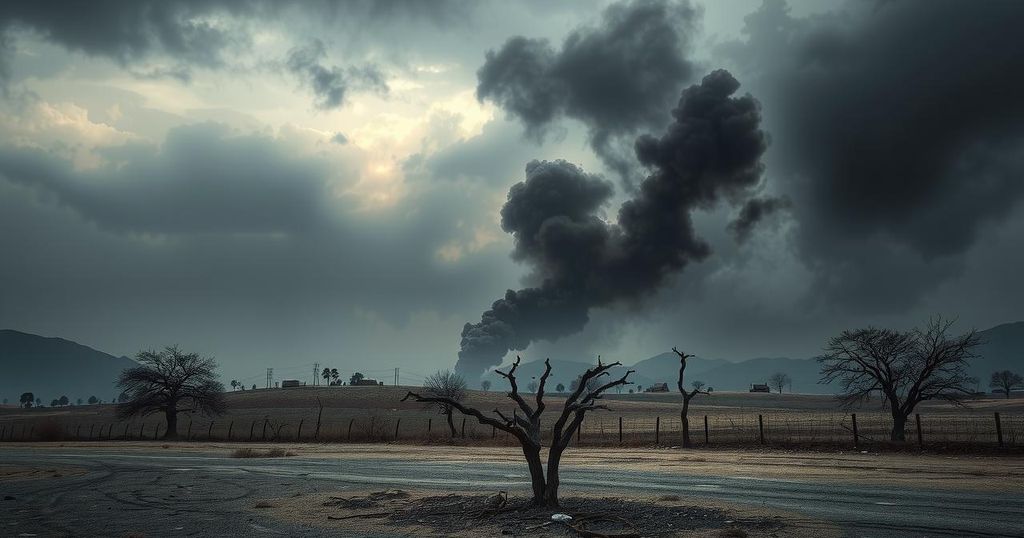An airstrike by South Sudan’s airforce in Nasir killed at least 19 people, escalating tensions with the White Army militia. This incident follows two weeks after government troop withdrawal from the area and raises fears of renewed civil war. The conflict reflects ongoing ethnic tensions primarily between the Nuer and Dinka groups, with allegations of political collusion complicating the situation.
An airstrike conducted by the South Sudanese airforce in the eastern town of Nasir resulted in the deaths of at least 19 individuals, as reported by local residents. This military action occurred less than two weeks after government forces had withdrawn from the area, which had witnessed intense confrontations with the largely ethnic Nuer militia known as the White Army. These violent engagements have raised fears of a renewed civil war reminiscent of the devastating conflict between 2013 and 2018, which claimed numerous lives.
The escalating turmoil is primarily between South Sudan’s national forces and the White Army, which is composed mostly of armed youths from the Nuer ethnic group. Tensions have heightened as the government accuses First Vice President Riek Machar of colluding with the White Army, the very militia that supported his faction against the predominantly Dinka soldiers loyal to President Salva Kiir during the previous civil war. Machar’s party, however, has refuted any involvement with the White Army.
On March 7, conflicts intensified further, as a U.N. helicopter attempting to evacuate 27 soldiers from Nasir was attacked. The South Sudanese Information Minister, Michael Makuei, confirmed that the airstrike occurred on Monday morning, following testimonies from community leader Kang Wan, who stated that 15 victims died instantly, while others succumbed to their injuries later.
Reports indicate that Medecins Sans Frontieres received three patients with serious injuries at their hospital in nearby Ulang, two of whom died shortly after arrival due to severe burns. Commissioner James Gatluak Lew of Nasir County, who is allied with Machar, suggested that the airforce’s actions were likely retaliatory measures in response to the helicopter incident. Additionally, the presence of Ugandan special forces in Juba has stirred controversy, with the South Sudanese government affirming they were there to support the national army, despite prior denials of Ugandan troop presence.
The recent airstrike in Nasir underscores deepening tensions in South Sudan, highlighting a fragile peace and potential for renewed conflict. The conflict between government forces and the White Army raises critical concerns about the possibility of a civil war resurgence, reminiscent of previous devastating clashes. The denial of collaboration between political leaders and militias adds complexity to an already volatile situation. Moreover, international involvement, exemplified by Uganda’s deployment, continues to be a contentious aspect of the geopolitical landscape in South Sudan.
Original Source: www.indiatoday.in






